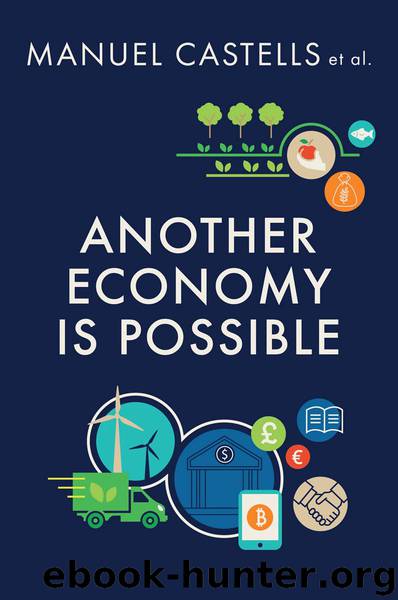Another Economy is Possible by unknow

Author:unknow
Language: eng
Format: epub
ISBN: 9781509517244
Publisher: Wiley
Published: 2017-04-19T00:00:00+00:00
Greater reliance on credit
Over the past several decades, Americans have relied increasingly on credit. Low interest rates and easy access to credit made credit cards a simple option for people experiencing financial stress. In 1983, only 43 percent of US households had a MasterCard, Visa, or some other general purpose credit card. By 1995, that number had risen to 66 percent. As of 2010, 68 percent of families had one or more credit cards. That means roughly 152 million consumers (two-thirds of adults above age 18) were holding 520 million credit cards in 2010 (Canner and Elliehausen 2013).
Credit card companies also sought new markets with aggressive marketing, eventually targeting riskier customer segments. In 2005, credit card companies sent nearly six million pre-screened solicitations to consumers, or 20 solicitations for every man, woman, and child in the US. As companies’ tactics changed, so did the mix of cardholders. In 1995, cardholders were more likely to be single, to rent instead of own their homes, and to have less seniority at work than they were in 1989. These new borrowers were riskier than previous cardholders. They had a substantially higher debt-to-income ratio, which meant that even small drops in income could lead to financial distress. New borrowers were also more likely to work in unskilled jobs with wages dependent on the business cycle.
One means of evaluating the composition of credit card borrowers is to look at those who were targeted with credit card solicitations. According to an analysis by the Federal Reserve, about 63 percent of individuals received credit card solicitations in 2007. This rate dropped to 27 percent by 2009. Individuals with credit scores in the lowest quartile (who pose a higher risk of default) received about 11 percent of credit card mailings in 2007. By 2009, that number had dropped to only 2 percent (Canner and Elliehausen 2013).
Credit card companies raised credit limits in the period leading to the Great Recession also. The median available credit per card increased about $900, or about one-third, and the median outstanding balance rose from $1,100 in 1989 to about $1,700 in 1995. In 2010, most families that held credit card debt owed relatively stable amounts. The median owed by families carrying debt was $2,600. However, the average amount owed by US households in general is significantly higher at $7,100 (Canner and Elliehausen 2013). When considering only those families who are in debt, average household debt is $15,224 (Federal Reserve Board 2014).
The cost of using credit cards has also risen, and policy has abetted rising costs. Consumer debt has grown along with the deregulation of the credit card industry beginning with the 1978 Supreme Court ruling of Marquette v. First Omaha Savings Corp., which virtually eliminated interest rates on credit cards. In 1996, the Smiley v. Citibank decision did the same for credit card fees, allowing them to be determined by the lender’s home state. Prior to this decision, credit card late fees averaged $16; in 2007 the average late fee was $34 (Garcia 2007).
Download
This site does not store any files on its server. We only index and link to content provided by other sites. Please contact the content providers to delete copyright contents if any and email us, we'll remove relevant links or contents immediately.
Still Foolin’ ’Em by Billy Crystal(36335)
We're Going to Need More Wine by Gabrielle Union(19020)
Plagued by Fire by Paul Hendrickson(17392)
Pimp by Iceberg Slim(14464)
Molly's Game by Molly Bloom(14124)
Becoming by Michelle Obama(10004)
When Breath Becomes Air by Paul Kalanithi(8408)
Educated by Tara Westover(8035)
The Girl Without a Voice by Casey Watson(7870)
The Incest Diary by Anonymous(7662)
Note to Self by Connor Franta(7657)
How to Be a Bawse: A Guide to Conquering Life by Lilly Singh(7458)
The Space Between by Michelle L. Teichman(6911)
What Does This Button Do? by Bruce Dickinson(6187)
Imperfect by Sanjay Manjrekar(5855)
Permanent Record by Edward Snowden(5813)
A Year in the Merde by Stephen Clarke(5396)
Shoe Dog by Phil Knight(5241)
Promise Me, Dad by Joe Biden(5132)
